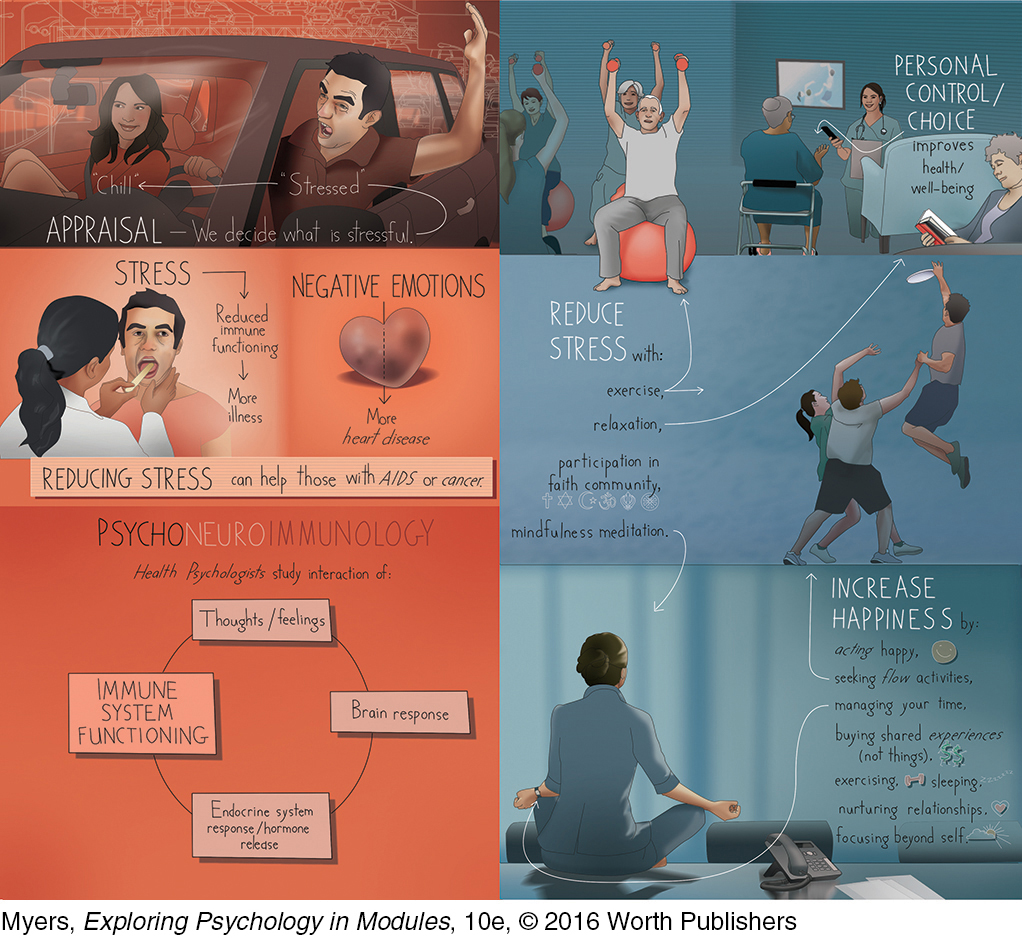Chapter 11 Introduction

Stress, Health, and Human Flourishing

SIR RANULPH FIENNES, called “the world’s greatest living explorer” by Guinness World Records, has experienced significant stress—
Just before his birth, Fiennes’ father died in WWII, which was a particularly difficult time to grow up fatherless. As an adult adventurer, Fiennes tried to walk solo to the North Pole, but his sleds fell through the ice. He pulled them out by hand and later sawed off his own frostbitten fingertips. Years later, as he was preparing to run seven marathons on seven continents in seven days, he experienced a heart attack and had double bypass surgery. Then his beloved wife of 33 years died of cancer. And when he tried to become the oldest Briton to climb Mount Everest, he had to quit near the summit when having another heart attack.
Fiennes did not perceive these events as stressful setbacks, but rather chose to press on with his relentless, can-
How often do you experience stress in your daily life? Do you feel differently about stressors that seem imposed on you (deadlines, assignments, tragic events) than about the “stress” you impose on yourself (adventures, challenges, happy changes)? As we will see, our definition of events affects our experience of those events and whether we even consider them “stressful.”
Fiennes’ life, and yours, embodies what Modules 33 and 34 explore: the difficulty of unwanted stress, the important ways we are affected by our interpretation of events, how we cope with stress and setbacks, and the possibilities for a happy, flourishing life. 